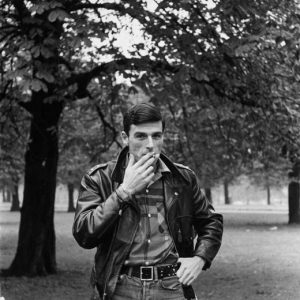Colm Tóibín at the LRB:
 The accepted view of Gunn, as Kleinzahler sums it up, was that in 1954 he ‘had removed himself to California where he would, as was alleged over and over, begin his long decline, undone by sunshine, LSD, queer sex and free verse’. Kleinzahler sought to challenge this idea of the softening of Gunn’s brain in California. ‘The city,’ he wrote, ‘will become his central theme, character and event being played out on its street corners, in its rooms, bars, bathhouses, stairwells, taxis.’ Kleinzahler also notes that, even when the poems became more relaxed and contemporary, ‘the “I” of the poetry’ carried ‘almost no tangible personality. This can be upsetting or disappointing to the contemporary reader, especially the American reader, accustomed to the dramatic personalities behind the voices in recent poetry: Lowell, Berryman, Sexton, Ginsberg, Plath, Hughes, et al. Even in Larkin there exists a strong, identifiable persona, no matter how recessive the tone.’
The accepted view of Gunn, as Kleinzahler sums it up, was that in 1954 he ‘had removed himself to California where he would, as was alleged over and over, begin his long decline, undone by sunshine, LSD, queer sex and free verse’. Kleinzahler sought to challenge this idea of the softening of Gunn’s brain in California. ‘The city,’ he wrote, ‘will become his central theme, character and event being played out on its street corners, in its rooms, bars, bathhouses, stairwells, taxis.’ Kleinzahler also notes that, even when the poems became more relaxed and contemporary, ‘the “I” of the poetry’ carried ‘almost no tangible personality. This can be upsetting or disappointing to the contemporary reader, especially the American reader, accustomed to the dramatic personalities behind the voices in recent poetry: Lowell, Berryman, Sexton, Ginsberg, Plath, Hughes, et al. Even in Larkin there exists a strong, identifiable persona, no matter how recessive the tone.’
more here.
